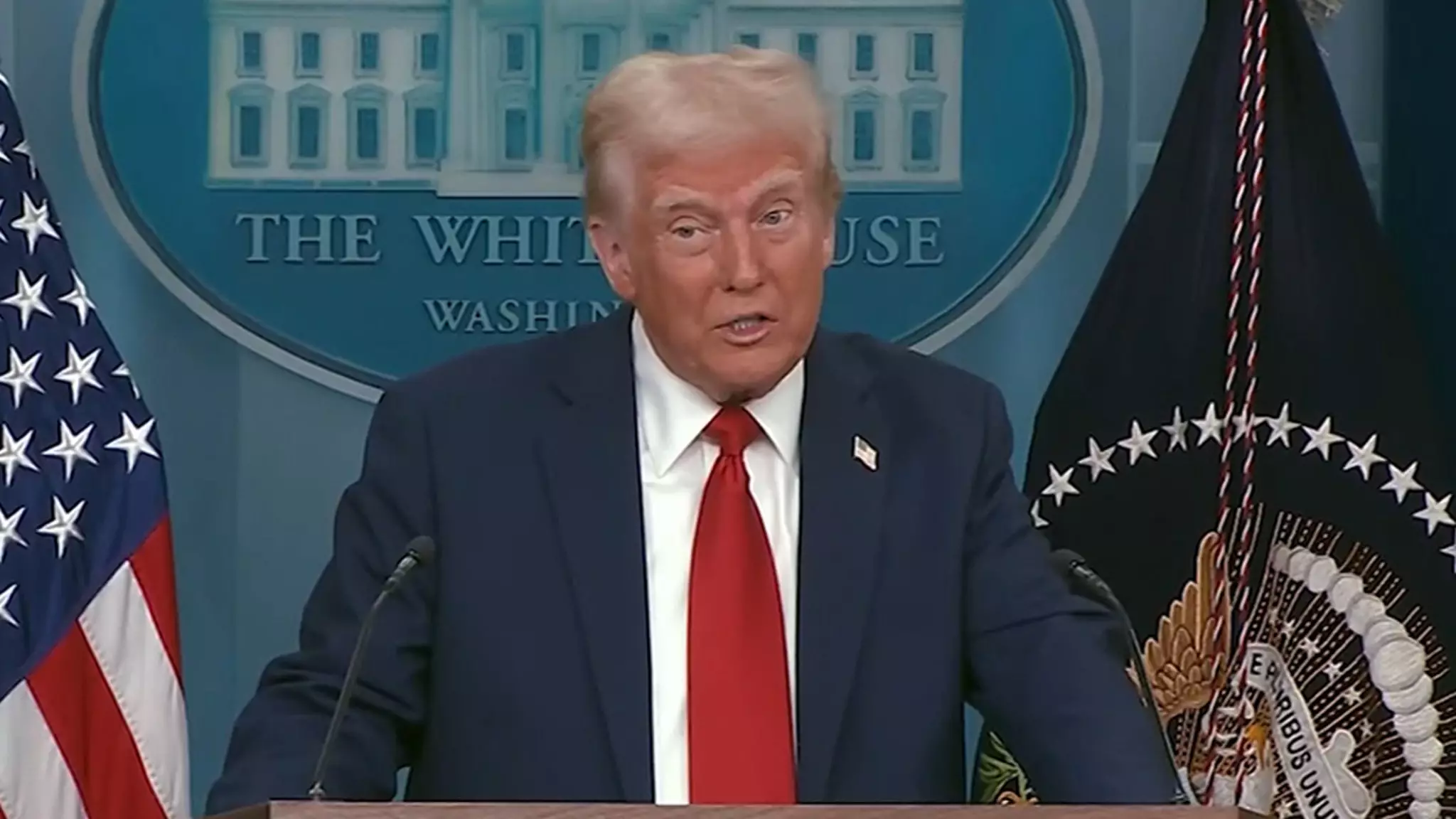In the wake of the tragic flight collision over Washington, D.C., that resulted in the loss of 67 lives, the response from political leaders has underscored the intersection of crisis management and political rhetoric. The incident has not only captivated the nation’s attention but also sparked a heated discourse surrounding the roles and responsibilities of government officials, particularly in times of disaster. With the former President Donald Trump targeting current Transportation Secretary Pete Buttigieg for his department’s hiring practices, the event serves as a critical case study on the implications of leadership during crises.
Following the catastrophic incident, President Trump convened a press conference to address the tragedy, quickly shifting focus from condolences to political accusations. His statements suggested that the longstanding initiatives surrounding diversity, equity, and inclusion (DEI) in hiring for critical transportation roles contributed to this disaster. Trump’s commentary raised eyebrows as it ventured beyond the known facts of the crash, which remained under investigation. The suggestion that DEI hiring practices undermined the capabilities of air traffic control personnel illustrates a troubling trend in political discourse: the tendency to assign blame rather than engage in substantive analysis of the situation.
Conversely, Secretary Buttigieg’s response on social media called for more than casting blame, urging a need for “actual leadership.” This counterpoint indicates that political discourse should transcend mere scapegoating; rather, it should encourage constructive dialogue and collective problem-solving rather than superficial commentary aimed at political gain.
The assertion by Trump that the FAA’s commitment to hiring individuals with disabilities contributes to incompetence in high-stakes roles overlooks the fundamental principle that diversity enhances organizational effectiveness. A body of research demonstrates that diverse teams are often more innovative and effective. By conflating disability with incompetence, Trump’s rhetoric not only undermines the value of inclusivity but also diminishes the efforts of countless professionals in aviation and other sectors who contribute significantly irrespective of their backgrounds.
Moreover, the reliance on anecdotal evidence and personal beliefs, as exemplified when Trump claimed, “I have common sense … other people don’t,” suggests a prioritization of emotional appeal over factual integrity in leadership. In crisis situations, the call for rational and informed responses is paramount; leaders should aim to unite rather than divide in their messaging.
Effective communication is crucial in the aftermath of any tragedy. Unfortunately, the press conference delivered by Trump, laden with political ambivalence, may have amplified uncertainty rather than provided solace. Establishing a transparent and coherent narrative surrounding the incident is essential not only for public trust but also for laying the groundwork for necessary systemic improvements.
While Trump alluded to various opinions regarding the cause of the tragedy—without having access to complete investigative findings—it is important to underscore that effective leaders typically wait for comprehensive assessments before drawing conclusions. Such an approach prevents the spread of misinformation and fosters a more informed public discourse.
The confrontation following the recent D.C. flight catastrophe serves as a compelling reminder of the complexity involved in leadership during crises. Politically charged rhetoric that emerges amid tragedy can complicate recovery efforts and distract from addressing the root causes of issues within the transportation network.
As citizens observe these events unfold, there emerges a call for political figures to demonstrate genuine leadership—characterized by accountability, empathy, and a commitment to factual discourse. For future tragedies, society would benefit from leaders who prioritize transparency and unity, thus ensuring that political capital does not overshadow the essential responsibilities of governance. Ultimately, this incident is a reminder of the vital role that effective leadership and communication play in navigating the intricate landscape of crisis management.

Leave a Reply